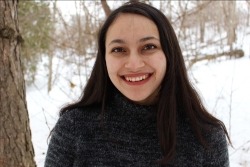
Sarah Balakrishnan
Biography
My research reveals how human geographies of the Atlantic slave trade shaped colonial rule in the Gold Coast, leading to the British state’s early—and path-breaking—downfall. In March 1957, Ghana became the first sub-Saharan African country to achieve independence from colonial rule. My project suggests that it is no coincidence that it is also the territory where the colonial state owned the lowest proportion of land—a fact owed to transformations in human-land relationships during the slave trade. By tracing a history of territorial occupation and spatial formations before colonization, I reveal how endemic migration during the slave trade created population pressure in the south, leading to a division in land that resembled private property. Whitehall’s subsequent declaration that all land in the Gold Coast was “the private property of its people” not only prevented mass annexation by colonists, but forced colonization by unusual means. Contrary to studies of colonial states that privatized and enclosed the commons, I examine the reverse process: the “public”-ization of the private. In order to govern the Gold Coast, Britain supplanted the private estates of the slave trade with a public forged through state infrastructure, agricultural commons, and public spaces designed for rituals and mass surveillance. They reorganized all land and sovereignty in the colony according to a public/private divide. What they did not count on, however, was how this project would introduce a new vision of political community: an “anticolonial public” united by these transformations to land and space. Even more than the Pan-African activism of figures like Kwame Nkrumah, popular protests surrounding the functions of public land made the colony ungovernable by the 1940s. Against studies that analyze decolonization through identitarian categories like race and nationhood, my project traces the evolution of a body politic—“the anticolonial public”— through changes to human geographies that occurred over nearly three hundred years.
Post-fellowship placement: Assistant Professor of History at University of Minnesota